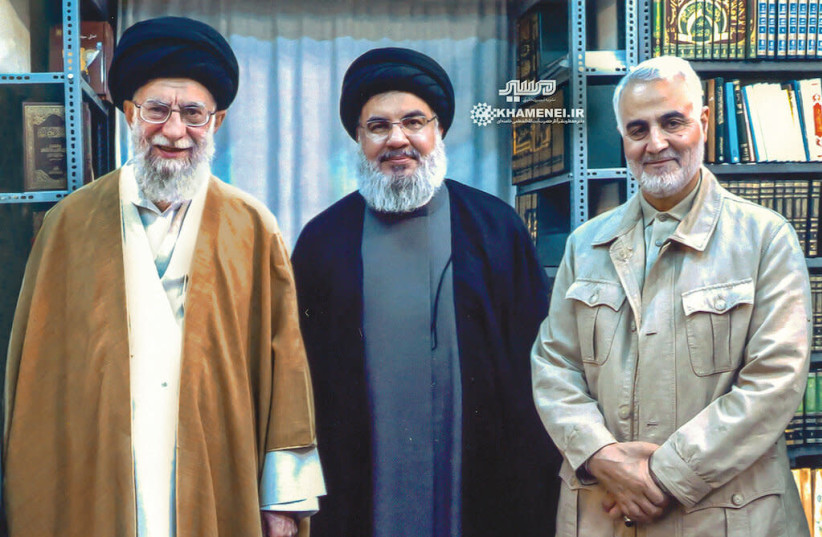Rockets used against US forces in Iraq were same type Israel found in 2009 being shipped to Hezbollah

In 2009 Israel intercepted a shipment of rockets destined for Hezbollah. The crates of rockets were a similar 107mm type as were found near a base in Iraq where a US contractor was killed and several US forces injured on Friday.
Photos posted online on Saturday show that the rockets used in the attack on the K-1 base northwest of Kirkuk were 107mm rockets that weighed 18 kg. They were manufactured in 2016. A Bongo truck with an improvised rocket launched in the back was used to fire them. A total of three rows of 12 tubes was used. Four of the rockets were found intact. 32 others were fired at K-1 base, setting off munitions in a storage facility there on Friday night and killing one US contractor. This is the most serious incident since May when rockets have been fired at bases in Iraq where US forces are present. The US has blamed Iranian-backed proxies for the past attacks. In a November attack on Qayyarah a similar salvo of 107mm rockets was fired.
In 2009 Israel intercepted the MV Francop. According to the Ministry of Foreign Affairs website and the IDF Spokesperson at the time, the ship included munitions hidden in containers. Israel put photos online in 2009 from the ship that showed rockets. These were 107 mm rockets with the same style logo and lettering on them. The rockets say “107mm rocket” and “Lot, Date, N.W and R.No” printed on them. In 2009 the rockets had been made in 2007 and were lot number 6 and weighed 19.25 kg. They had an “R.NO” of 8872 that was hand printed. The K-1 rockets were also 107 mm, had lot number 570, made in 2016. They were 18kg and in hand written notes their “R No.” was 3965.
In 2009 Israel noted that it had intercepted 500 tons of arms en route to Syria on the MV Francop. This included 3,000 Katyusha rockets. The consignment was “en route via Syria to the Hizbullah terrorist organization,” the MFA wrote at the time.
More recent photos of these types of Iranian rockets have turned up. These include 2016 production numbers from lots 524 to 526. It appeared these were used by the Syrian regime in Eastern Ghouta in February 2017. More turned up in January 2018 in fighting in Syria near Damascus. This means that these types of rockets were frequently sent to Syria but that they also likely ended up in the hands of other pro-Iranian allies, including Hezbollah and likely in the hands of pro-Iranian members of the Popular Mobilization Units in Iraq. These include groups such as Kataib Hezbollah and Asaib Ahl al-Haq which US officials have accused in the past of threatening US forces. The US sanctioned the head of Asaib Ahl al-Haq in early December.
That means these PMU groups had the motive, means and opportunity to carry out the attack. What is missing is information on where precisely this lot number of 2016 rockets of the 107mm type were exported by Iran. Reports earlier this month indicated Iran was sending ballistic missiles to Syria. It is known that 107mm rockets have been sent to the PMU in the past according to the Center for Strategic and International Studies.
As reported by The Jerusalem Post
